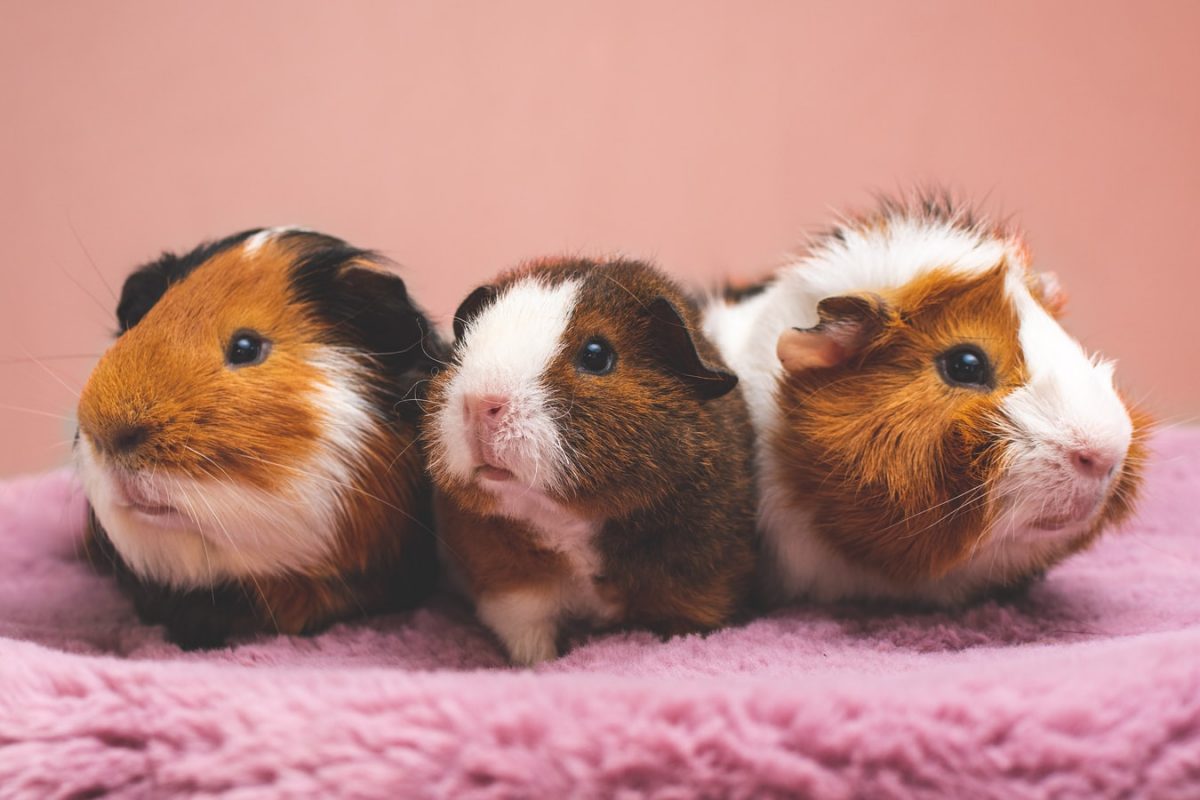Cheeky, squeaky furry potatoes! We love guinea pigs!
It’s the first ever guinea pig awareness week 22nd – 28th March and we wanted to celebrate our love for these extraordinarily social pets. They, like rabbits, are often thought of a good ‘starter’ pet for children but there must be an adult around to take the responsibility for the animals health and welfare. When Admin started working for the RSPCA many moons ago, it was still considered OK to have a rabbit and guinea pig living together. It meant they had company but without the risk of unwanted pregnancy. However, they do not make good companions for several reasons:
- Rabbits can bully and sometimes injure guinea pigs
- They have different dietary requirements
- Being different species, they can’t communicate or understand each other. Both bunnies and guineas need other bunnies and guineas to be happy.
We mentioned diet above and guinea pigs can’t synthesise vitamin C so they need it in their food. Good quality guinea pig pellets will be fortified with the vitamin and should be given daily but they can also nibble vit C from kale/broccoli. It’s great to feed them fresh grass/herbs/vegetables and suitable fruits and you will be rewarded by a high pitched squeak of joy! They also require lots of hay, these vocal critters are on the go around 20 hours a day and spend a lot of that time eating! Untreated wooden chews will help to keep their teeth in order as guineas love to gnaw, they are rodents after all!
When it comes to housing, bigger is better with plenty of room to stand on their back legs and stretch. GP’s love to have places to explore eg tunnels they also need dust free bedding (not wood shavings) ideally hay as they will not only sleep in it but munch on it too. Outdoor accommodation should be sheltered, warm, draft free and dry in the winter, cool and dry and out of direct sunlight in the summer. Indoor housing should be in a part of the home that is a constant temperature and not directly near a heat source.
Once again, as mentioned above, cavies (another name for guinea pigs) need others to be happy. They can be kept in groups but the minimum should be a pair. It’s best to obtain them at the same age so that there are no spats when trying to introduce 2 strangers. Ideally, it’s best to have 2 females, a neutered male and females or 2 neutered males. If you live in our area, we can help with the cost of neutering in the form of a voucher.
We always advise, no matter what pet or species of animal you are considering having to do research before committing. Piggies live on average 5-7 years but can live a lot longer. During this time they will need regular veterinary checks and your time and love on a daily basis. There’s lots more information at RSPCA England & Wales and also at Guinea Pig Awareness Week.

